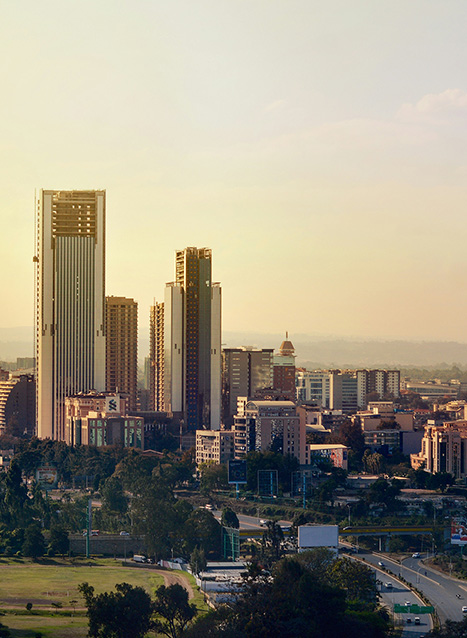Evacuations from Israel and High-Risk Locations Call +44 (0)1202 308810 or Contact Us →

Kenyan Electoral Violence and Ongoing Risks
27 Oct 2017
Extensive protests and police violence marred the Kenyan presidential election re-run on 26 October 2017. Electoral proceedings occurred with minimal disruption in areas known to support incumbent president Kenyatta. Regions supporting the opposition NASA group and Mr Odinga, however, exhibited very low turnout and, in a number of cases, protracted violence towards electoral officials, and violent protests against police. Average turnout has been estimated at around 35 per cent across the country, although this was not evenly distributed. Due to the distribution of the turnout, a victory for Kenyatta is almost certain.
Key Points
- Violence has occurred across opposition-dominated areas. Party support is predominantly determined by ethnicity.
- Areas of the capital Nairobi, particularly Kibera district, continues to see extensive violence.
- The election is likely to deliver a clear victory to Kenyatta due to opposition boycott.
Situational Summary
Civil Unrest: Extensive protests and police violence marred the Kenyan presidential election re-run on 26 October 2017. Electoral proceedings occurred with minimal disruption in areas known to support incumbent president Kenyatta. Regions supporting the opposition NASA group and Mr Odinga, however, exhibited very low turnout and, in a number of cases, protracted violence towards electoral officials, and violent protests against police. Average turnout has been estimated at around 35 per cent across the country, although this was not evenly distributed. Due to the distribution of the turnout, a victory for Kenyatta is almost certain.
In the Kibera area of Nairobi, police deployed teargas against protesters, as well as firing warning shots using live ammunition. A number of people were reported wounded in physical altercations between police and various groups of protesters, including at least one Member of Parliament.
The opposition dominated city of Kisumu in the west of the country saw extensive rioting; police deployed water cannons and used live ammunition in an attempt to disperse protesters and clear a series of roadblocks. At least one person was shot dead, seven suffered gunshot wounds, and numerous others suffered non-fatal injuries.
At least one protester was shot and wounded by police in Migori, the reason for the shooting remains unclear, as the incident did not appear to occur near wider protests.
Police transporting ballot boxes were attacked in Garissa, leaving three wounded, one dead, and the electoral documents destroyed.
Protesters attacked a polling station during counting in Bungoma, destroying the ballots. Two protesters were shot, one fatally, around the city in the aftermath of the attack.
Protesters established substantial roadblocks in Nakuru in order to prevent electoral personnel from conducting the election.
Across these affected areas, polling stations suffered high levels of absenteeism from the presiding officers due to the perceived threat to life. Similarly, access to some locations was obstructed, effectively preventing the poll from taking place. A provisional plan to conduct delayed polling on 28 October has been declared in those areas where voting was prevented. The date for the announcement of the results has not been confirmed accordingly.
Solace Global Comment
The re-run of the presidential election, on 26 October 2017, was intended to provide the victor with a clear mandate to govern following a series of perceived issues with the original election held on 08 August 2017. However, due to the widespread conflict and incomplete nature of the poll, the result of this election is almost certain to result in an even weaker mandate. It is highly likely, given the extensive disruption, that the election will face further legal challenges, with the realistic possibility that it will be nullified as per the August poll.
Continued political uncertainty is likely to lead to persistent civil unrest, particularly in opposition strongholds. Violent actions by the police, as they attempted to disperse protesters, are likely to further inflame tensions as opposition groups widely view law enforcement as a tool of the incumbent party, rather than an apolitical force. Approximately 50 people have died in protests related to the elections since the August poll and, with Kenya’s history of politically and ethnically motivated violence, it is likely that this trend will continue. At this stage, no foreign nationals have been reported as having been injured during this round of violence, however post-electoral violence in 2007 did result in a number of travellers coming to harm, in addition to the 1,300 locals killed.
SECURITY ADVICE
Civil UnrestHighTravellers should be aware there is an increased security presence in Kenya, especially in the capital Nairobi. Bans on protests have been implemented in certain areas of Nairobi, Kisumu, and Mombasa, however enforcement has not been effective. Increased numbers of checkpoints are likely to impede travel within country. It is vital that travellers adhere fully to the instructions of security forces; non-compliance may result in the use of force.
It is recommended that post-election protests are avoided. It is likely police will continue use forceful measures against demonstrators, and inter-ethnic clashes regularly turn violent. Political gatherings may initially seem peaceful but can escalate quickly into violence. It would be advisable for travellers to maintain a low profile in the short-term and monitor local events. If currently in Kenya, travellers are advised to ensure they have contacted their travel provider or airline for advice on rebooking return flights in case of the situation deteriorating.
Solace Global would advise clients to employ enhanced security measures when visiting Kenya – airport meet and greet and a security driver for the length of a visit should be minimum security precaution. Travellers may also wish to employ executive protection. Additional measures should be considered if travelling to any of the areas presently experiencing violent unrest.